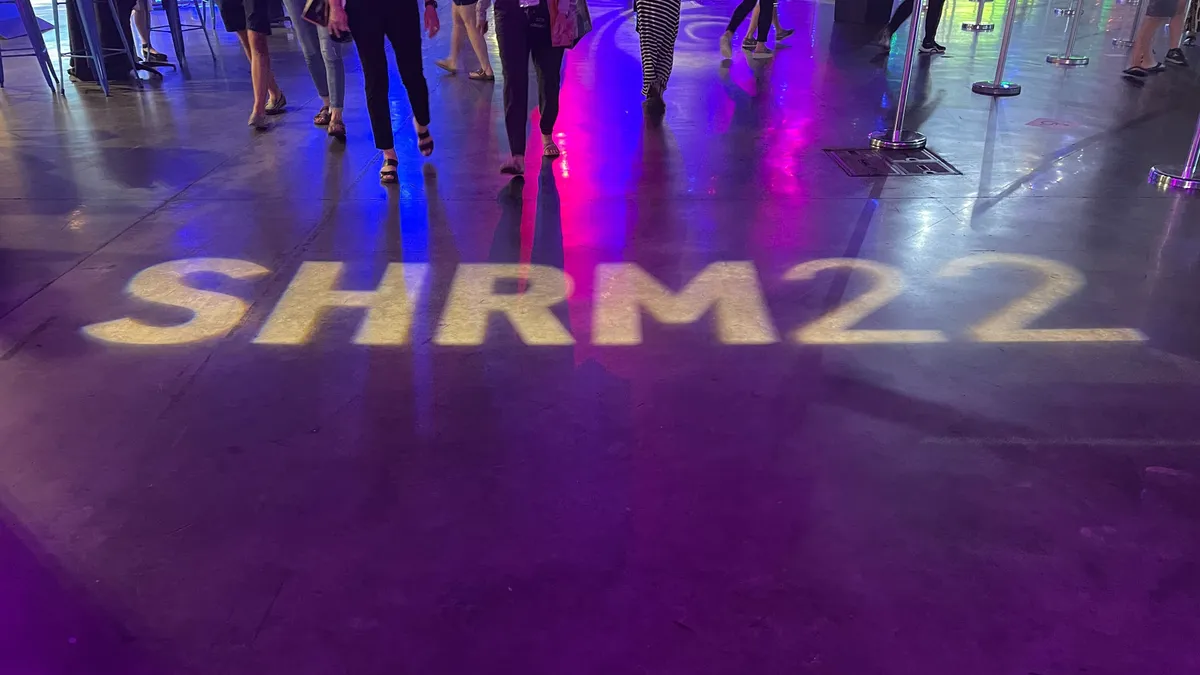Few presenters at the Society for Human Resources Management annual conference get as loud or warm a welcome as Steve Browne.
Browne, chief people officer at LaRosa’s Pizzeria and popular HR voice, held a packed session Tuesday regarding the “human” part of human resources. His comments, while often met with laughter from the audience, offered an incisive view on what HR pros can do right now to feel better about their work and connect with their people.
Five of his insights are below.
“Stop having an HR face and have a human face.”
HR pros often deal with the brunt of emotional conflict in the office, Browne said, but are saddled with the expectation – self-imposed or otherwise – that they can’t have emotions themselves.
“So many of you are not expressive … Here’s the thing: You can’t just telepathically do this job,” he said. “You can think awful things about people all day or great things, but not being expressive as a profession has kept us down for decades.”
Emotional withholding can also bring intense burnout, he said; “It’s killing us.”
“I am a human. I am irrational. You are too. And yet we keep trying to do HR rationally instead of emotionally.”
Browne told a story about how two members of his company got into it regarding a meeting — before the meeting even took place. He, like many HR people, was incidentally made into the middleman and had to explain to both parties that their behavior was out of line. They eventually had the meeting as intended and it went well.
“People paint this perfect workforce,” and that’s just not real, he said; conflict is real. And that requires meeting people at the emotional level to truly solve those issues.
“Quit talking about your people in third person.”
As appealing as it may be to separate from the pack sometimes, HR pros can’t afford to depersonalize their work, he said.
“It’s not a ‘them’ situation,” he said. It can be easy to feel stuck when HR feels separate from everyone else at work, and that can harm the professional overall, he noted. Treat your people as people, he added, and work can thrive.
“Stop doing time management. Start allocating your time.”
Allocate time to the things that matter and feel most impactful for the job, Browne said. And especially make time with your peers, Browne advised. The community matters, especially in an industry like HR, and can be a keen resource during tough times.
He noted that he was an HR “department of one” for a long time, but when he started connecting with his peers, he gained people that he could vent to and ask for advice when things got hard.
“If you don’t connect, you’re going to struggle in your job.”
“What are you doing to bring people together in your company to perform? That is great HR.”
While compliance is an important aspect of the job, HR’s focus should be on relationship-building, he said; “HR should be the connective tissue within every organization.” Time spent with people in the organization – listening to them and understanding them – is time well spent, he added. And when relationships are strong, silos at companies break down completely.
“We are the only profession that touches every single person every single day,” he said — an opportunity few other jobs can boast.












